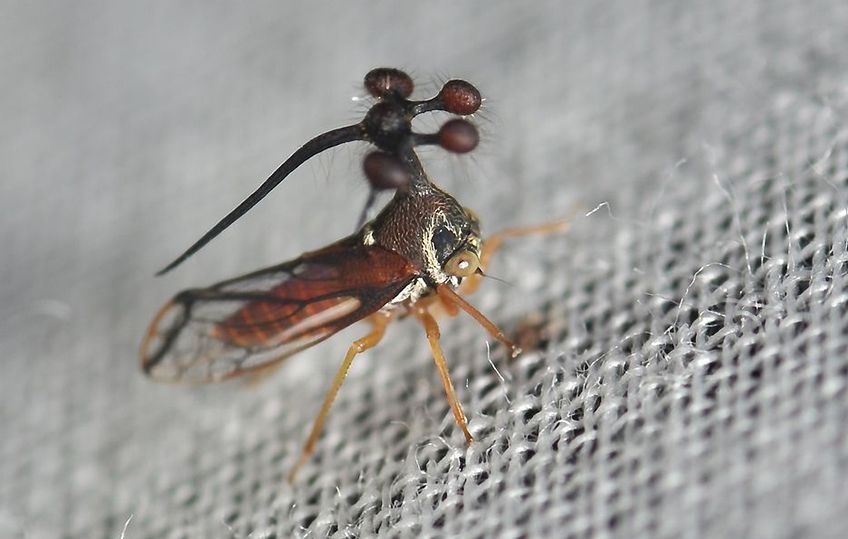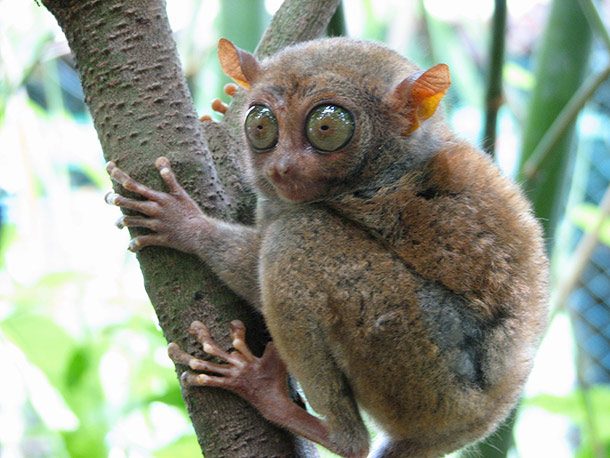
This is a primate known as the tarsier. They are indigenous to southeastern Asian islands, and grow to about half of a foot tall. There, they primarily dine on insects, but sometimes eat birds and reptiles. Their gaudy eyes are abount the size of their brains, sometimes larger.
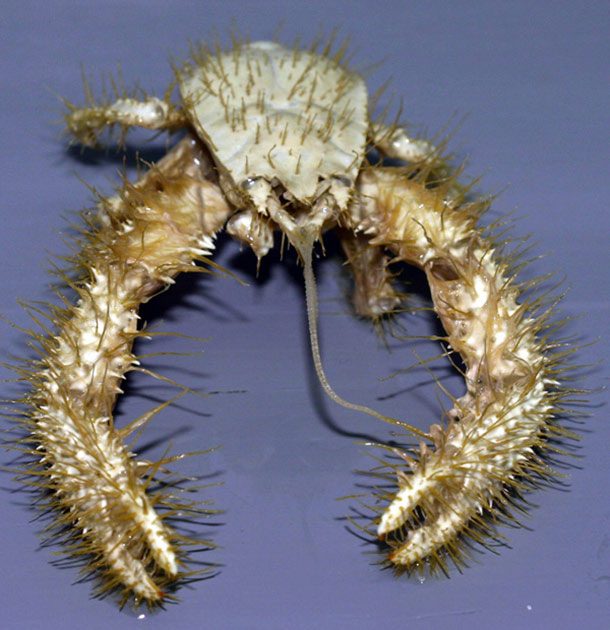
These furry crustaceans, known as yeti crabs, are extremely picky about where they live. The crabs are found surrounding Antarctic hydrothermal vents, where the ~700°F water from the vents rapidly cools. To survive, they grow their microbial meals on their hairy shells.
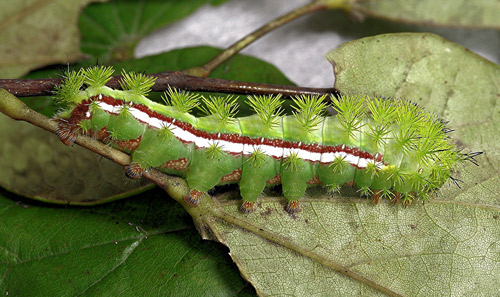
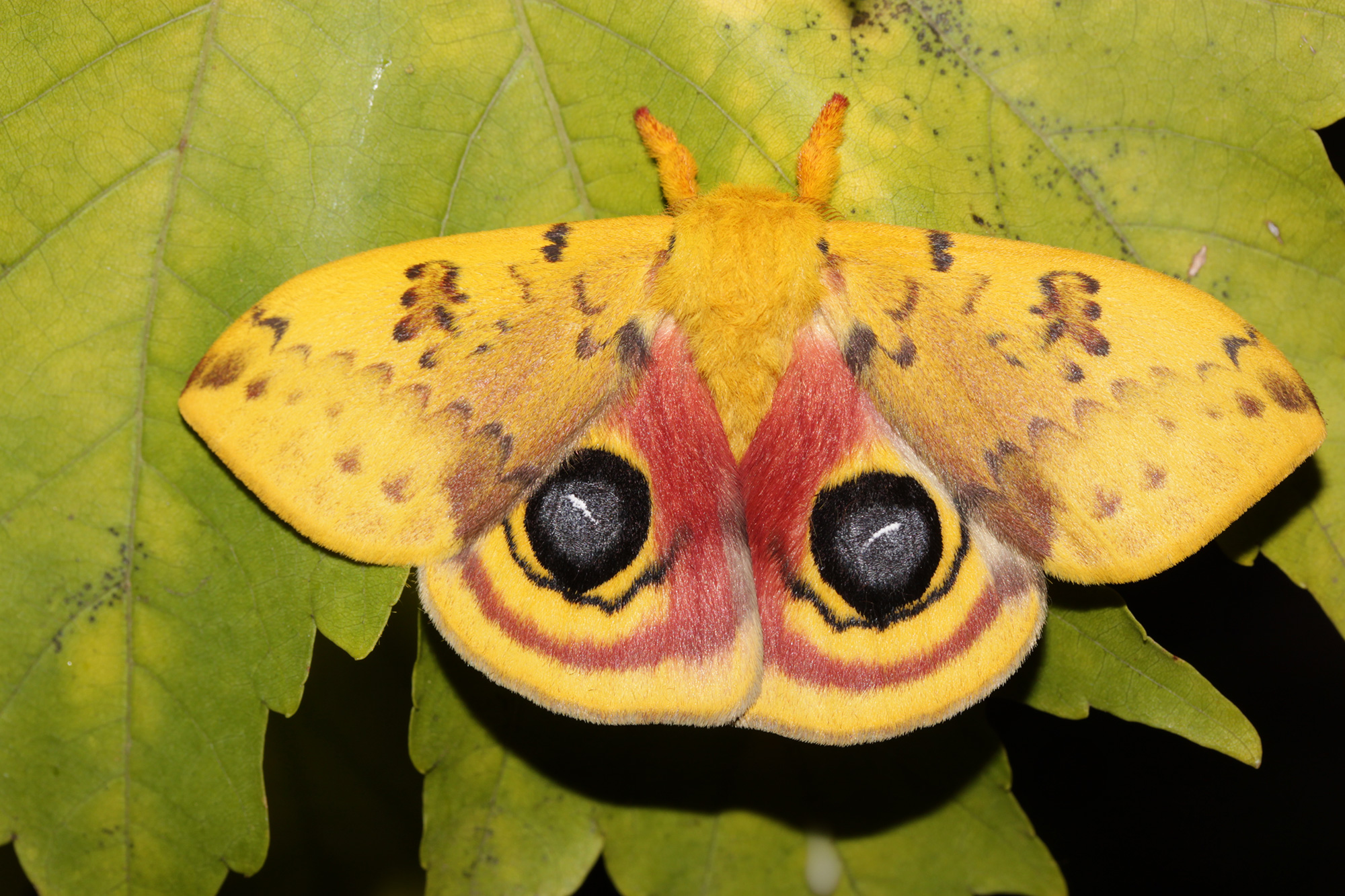
The spikes of this moth caterpillar are both form and function. Many caterpillars can sting, but this one takes the cake. Larvae of Automeris io (Fabricius) are equipped with stings severe enough to leave lifelong scars.
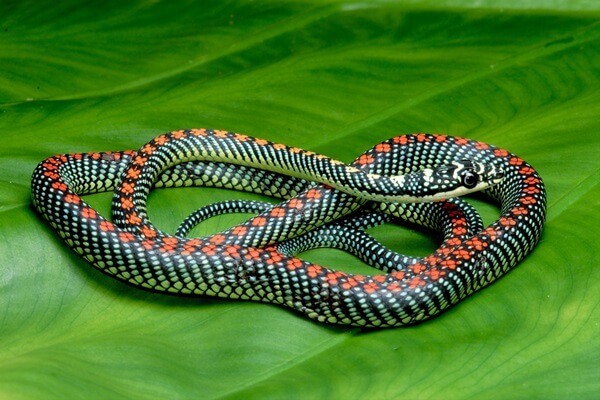
This is the flying snake. It's named after its exceptional capabilities of gliding, being able to glide up to 100 meters. through the southeastern jungles of Asia.
This makes flying snakes better gliders than their more popular mammalian equivalents, the flying squirrels.
They are mildly venomous, but the placement of their fangs in the back of their mouths renders them harmless to humans.

